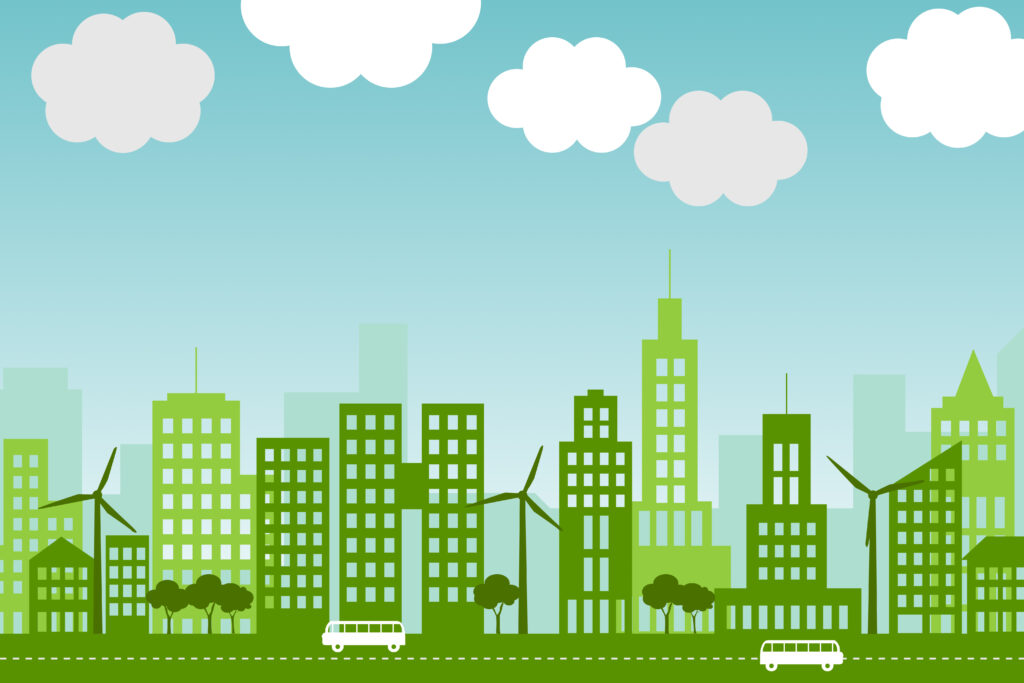The science is clear that our future as a species depends on the health of this planet and as both technology and society continue to evolve, that challenge has only become more relevant.
Fortunately, England has taken steps to address this issue head-on and has become a leader in sustainability among its European peers. This article will list its top three greenest cities and explain what makes each so planet-friendly.
Exeter
The most recent data available points to Exeter as England’s greenest city. A new survey conducted by the University of Sheffield named the municipality’s core as the national leader after months of reviewing a variety of factors, including vegetation cover and natural landscape.
Researchers used satellite observations of light reflection and absorption to grade 68 municipalities across the UK, ultimately finding that Exeter had the most greenspace of them all.
Beyond this specific study, the city has also made a name for itself in sustainability by publicly committing to go completely carbon neutral by 2030 and earning Garden City designation in 2019.
It recently launched a municipal initiative called the ‘Exeter Sustainability Awards’, which aims to recognize local citizens, groups and businesses for their work in environmental protection.
Islington
While it’s largely famed for its vast array of restaurants, cafes and bars, Islington has gained notoriety in the realm of environmentalism over the years. It ranked second behind Exeter in the University of Sheffield’s 2022 greenery study thanks to a large number of natural spaces and public parks.
Islington is known for environmental initiatives like tree planting, sustainable infrastructure investments, and gardening groups. Its council broke barriers in 2021 when it announced plans to introduce the UK’s first ‘green bond’, which incentivizes residents to invest in local recycling, solar power and electric vehicle charging station projects.
While Islington also runs its own local sustainability awards, it also takes global ones home for itself. Bunhill 2 Energy Centre, for example, won the city an Energy Globe Award in 2021 as the first project in the world to generate energy using excess underground train system heat.
Bristol
Coming in at number three, Bristol has quite a bit to show for itself in terms of eco-friendliness. The city of 463,000 has one of the highest ranks for key terms like ‘electric car’ in the country and maintains an impressive waste recycling rate of 44.9%.
Not only that, but Bristol’s air quality is relatively low for the UK with a score of 2.537 out of 10 – zero being the best possible number.
This isn’t the first time Bristol has been recognized as a green leader in England; the city has been lauded with several official titles over the years, including European Green Capital of 2015 and Gold Sustainable Food City in May 2021.
It was also notably the first city in the country to declare a climate emergency back in November of 2018, which set an important precedent for surrounding regions and municipal governments.
These three English cities have all taken steps to lead the way in sustainability, and hopefully, their successful initiatives will serve as inspiration for others to do the same.
Regardless of the location, it’s important to remember that every small action has an impact – and together we can work towards a greener future for all.
Resources
https://www.theweek.co.uk/news/uk-news/954634/the-ten-greenest-cities-in-the-uk
https://www.islington.gov.uk/about-the-council/vision-and-priorities/greener-and-healthier-borough
https://www.bloomberg.com/news/articles/2021-10-29/london-s-islington-offers-first-green-bond-to-residents
https://www.comparethemarket.com/energy/content/greenest-cities/

